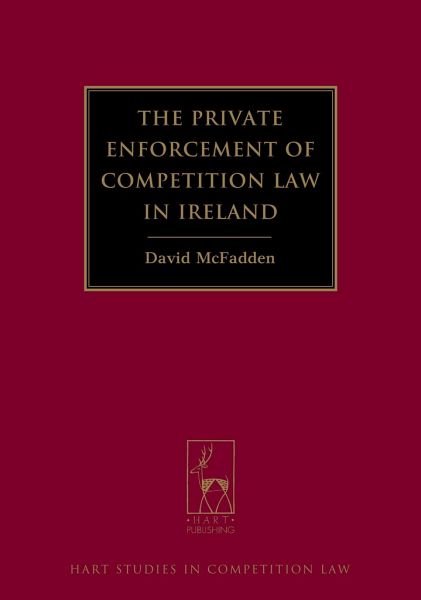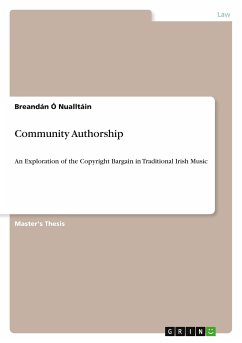Nicht lieferbar

The Private Enforcement of Competition Law in Ireland
Versandkostenfrei!
Nicht lieferbar
Competition is recognised as a key driver of growth and innovation. Competition ensures that businesses continually improve their goods and services whilst striving to reduce their costs. Anti-competitive conduct by businesses, such as price-fixing, causes harm to the economy, to other businesses and to consumers. It is small businesses and the consumer who ultimately pay the price for anti-competitive conduct. A coherent competition policy that is both effectively implemented and effectively enforced is essential in driving growth and innovation in a market economy. The importance of competit...
Competition is recognised as a key driver of growth and innovation. Competition ensures that businesses continually improve their goods and services whilst striving to reduce their costs. Anti-competitive conduct by businesses, such as price-fixing, causes harm to the economy, to other businesses and to consumers. It is small businesses and the consumer who ultimately pay the price for anti-competitive conduct. A coherent competition policy that is both effectively implemented and effectively enforced is essential in driving growth and innovation in a market economy. The importance of competition was recently emphasised when the EU/ECB/IMF 'Troika' included a number of competition specific conditions to the terms of Ireland's bailout. Both Irish and Community law recognise the right for parties injured by anti-competitive conduct to sue for damages. This right to damages, in theory, allows those that have suffered loss to recover that loss whilst helping to deter others from taking the illegal route to commercial success. However private actions for damages in Ireland are rare. This book asks what the purpose of private competition litigation is and questions why there has been a dearth of this litigation in Ireland. The author makes a number of suggestions for reform of the law to enable and encourage private competition litigation. The author takes as his starting point the European Commission's initiative on damages actions for breach of the EC antitrust rules and compares the position in Ireland to that currently found in the UK and US.














